NBCI Search
AUTHOR BIO
Cain Hope Felder, Ph.D.
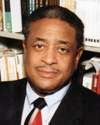 Cain Hope Felder is professor of New Testament Language and Literature and editor of The Journal of Religious Thought at the Howard University School of Divinity. Prior to coming to Howard, he taught at Princeton Theological Seminary. He also serves as chair of the Ph.D. program and immediate past chair of the Doctor of Ministry program.
Cain Hope Felder is professor of New Testament Language and Literature and editor of The Journal of Religious Thought at the Howard University School of Divinity. Prior to coming to Howard, he taught at Princeton Theological Seminary. He also serves as chair of the Ph.D. program and immediate past chair of the Doctor of Ministry program. Dr. Felder is an ordained Methodist minister within the United Methodist Church. From 1969-1972, Dr. Felder worked as the first national director of the United Methodist Black Caucus, in 1990, he founded the Biblical Institute of Social Change (BISC), headquartered in Washington, DC.
A prolific writer, his publications include True to Our Native Land, the first African American commentary on the New Testament; Troubling Biblical Waters: Race, Class, and Family and The Original African Heritage Study Bible. He is a sought-after lecturer, consultant and media interviewee, appearing in The Washington Post, The New York Times and Ebony, and on BET, PBS and NBC.
Dr. Felder holds a Ph.D. and a Master of Philosophy degree in biblical languages and literature from Columbia University in New York; a Master of Divinity from Union Theological Seminary in New York; a Diploma of Theology from Oxford University, Mansfield College in England; a Bachelor of Arts in philosophy, Greek & Latin from Howard University in Washington, DC; and a diploma from the Boston Latin School.
NBCI Education Initiative Feature Articles
- NBCI Creates Program to Tackle Dropout Rates Among Minority Youth .pdf [130kb]
Proposes Plan to Work With The Goldman-Sachs Foundation to Increase Graduation Rates - NBCI Decries Graduation Rates of African American Males .pdf [130kb]
Plans devised to increase graduation rates within 10 years

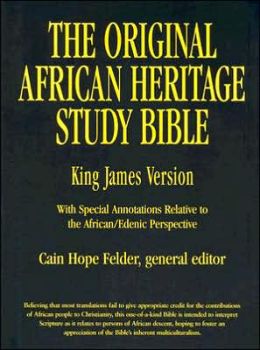 The Original African Heritage Study Bible: King James Version Paperback – Large Print
The Original African Heritage Study Bible: King James Version Paperback – Large Printby Cain Hope Felder (Editor)
The purpose of The Original African Heritage Study Bible is to interpret the Bible as it relates specifically to persons of African descent and thereby to foster an appreciation of the multiculturalism inherent in the Bible. The Original African Heritage Study Bible offers a number of unique features which reveal the African/Edenic contribution to Judaism and Christianity, including:
- Highlighted verses about Africa and Biblical characters of African descent;
- 48 pages of reference to African/Edenic persons, places and events;
- Original art reproductions taken from the Mafa tribe collection of Cameroon, Africa;
- Full-color maps showing where important African/Edenic events and places occurred in the ancient world;
- 101 favorite Bible verses from people of the African diaspora;
- Specially selected articles by outstanding national Bible scholars; and
- Words and music to famous slave songs
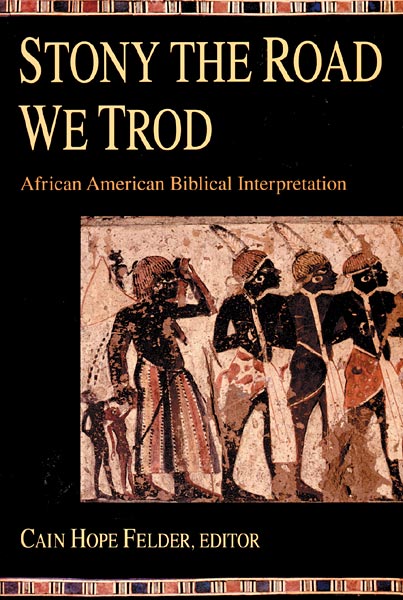 Stony the Road We Trod - Paperback
Stony the Road We Trod - Paperbackby Cain Hope Felder (Author, Editor)
This is a splendid collection of 11 essays by African American biblical scholars; the introduction puts the essays, and the consultation out of which they grew, into context. The essays consider biblical authority, African American sources for enhancing biblical interpretation, and the issue of race in the Bible. They also offer reinterpretation of specific biblical texts, while revealing the role blacks played within the Bible.
A hallmark of American black religion is its distinctive use of the Bible in creating community, resisting oppression, and fomenting social change. These essays are important for both scholars and general readers, making the book essential for many libraries.
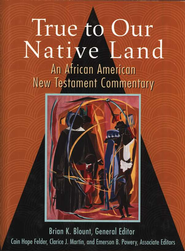 True to Our Native Land: An African American New Testament Commentary - Hardcover
True to Our Native Land: An African American New Testament Commentary - Hardcover by Cain Hope Felder (Editor), Brian K. Blount (Editor), Clarice J. Martin (Editor), Emerson B. Powery (Editor)
This pioneering commentary sets biblical interpretation firmly in the context of African American experience and concern. Cutting-edge scholarship that is in tune with African American churches calls into question many of the canons of traditional biblical research and highlights the role of the Bible in African American history, accenting themes of ethnicity, class, slavery, and African heritage as these play a role in Christian scripture and the Christian odyssey of an emancipated people.
Contributors include the volume editors, Thomas Hoyt, Ann Holmes Redding, Vincent Wimbush, and sixteen other notable scholars
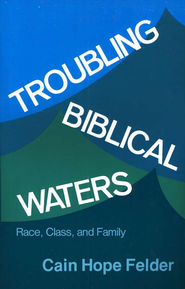 Troubling Biblical Waters: Race, Class, and Family - Paperback
Troubling Biblical Waters: Race, Class, and Family - Paperbackby Cain Hope Felder (Author)
This is a comprehensive and challenging look at the significance of the Bible for Blacks and the importance of Blacks in the Bible. Troubling Biblical Waters provides critical resources for studying the Bible, especially in relation to Black religion and the Church. Felder pays particular attention to issues of racial pluralism in the Bible, Old and New Testament mandates of social justice, and other biblical teachings relating to the human family and its survival. Sound, detailed scholarship and organization offer a greater racial balance and corrective to biblical hermeneutics and their historiographic assumptions.
A comprehensive and challenging look at the significance of the Bible for blacks, and the importance of blacks in the Bible. "Timely . . . serious and creative".--The Catholic Journal.






























